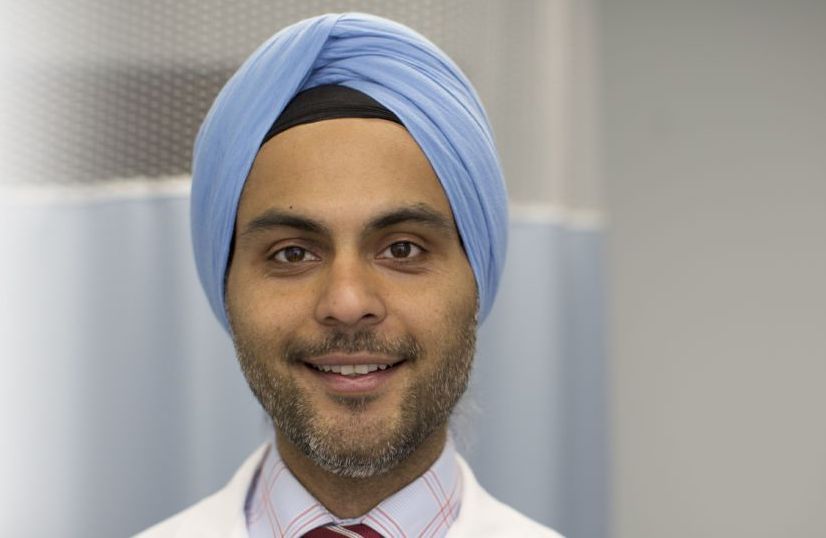“The key is that the patient is at the center.”
February 18, 2025

Gurusher Panjrath, MD, is an advanced heart failure and transplant cardiologist at GW Hospital Heart. Here, he discusses his specialty and what makes GW Hospital’s quality cardiovascular care stand out.
Q. Can you talk a little about heart failure and how you treat it?
A. Heart failure is the most common diagnosis of discharge from the hospital in the United States. With this condition, there’s a spectrum of diseases, where the heart is unable to pump enough blood. The heart failure specialist diagnoses it and tries to figure out the cause: Is it blockages in arteries, some kind of inflammation and/or genetics?
We then decide what kind of testing is needed. We work with imaging and other partners to get patients on the appropriate therapy. If patients do not respond to treatment or heart failure progresses, we evaluate them for more advanced therapies, such as a left ventricular assist device or a heart transplant.
Q. How do you work with other specialists at GW Hospital to care for patients?
A. Cardiology patients have a lot of comorbidities and many different diagnoses impact care. GW Hospital cardiologists give supportive care to those patients as they undergo treatments and therapy, or surgery and procedures for other diagnoses.
The other way around, some cardiac patients also have other problems which require close collaboration between critical care, infectious disease, pulmonary rehab, occupational therapy, physical therapy and nutrition. It’s a very multidisciplinary approach.
Q. What makes GW Hospital Heart stand out from other cardiology programs?
A. One is the collaborative care. Every patient is very thoughtfully evaluated and discussed between the different stakeholders involved with a multidisciplinary approach, whether in an inpatient or outpatient setting. It is really patient-centered.
Then, there’s a lot of expertise at GW Hospital in terms of national experts in the cardiovascular side, electrophysiology, heart failure and imaging. There are experts who are well-known nationally for education, research and innovation, too.
As an academic hospital, we are fortunate to be part of partnerships between us and other industry partners, as well as other research networks and clinical trials, because of the academic setting. Many other centers don’t have that option.
We participate in both organically driven clinical research or trials, as well as things that are sponsored from outside and we are part of those clinical trial networks.
Q. Is there new technology at GW Hospital Heart that is exciting to you?
A. We are looking at artificial intelligence and cardiovascular disease in different spheres; in the delivery of care, imaging and procedural guidance.
There are new techniques and also new clinical trials for conditions such as cardiac amyloidosis. There are new catheter techniques for atrial fibrillation, as well as other ablations, in electrophysiology. There are some things that we are early adopters of at GW Hospital.
From a program perspective, GW Hospital Heart has not only the tools and techniques, but also a lot of innovative programs that have been there for the delivery of care.
Q. What role does GW Hospital play in training the cardiologists of tomorrow?
A. As an academic institution with a long history, we have residency programs and fellowships. The cardiovascular division is at the very forefront of that education. We are involved in teaching them in outpatient settings, inpatient settings, the different procedural areas, intensive care units and training on every level.
Residents and fellows work closely with us at the hospital. We play a formative role in care decisions as well as growth and training.
Q. What is your philosophy of care?
A. My philosophy of patient care is very patient-oriented, treating patients based on partnership in a collaborative model. I really believe in collaborating with a patient and their caregivers or their families, particularly with heart failure, because it almost takes a village to take care of these patients.
Q. Why would you recommend GW Hospital and GW Heart to people in the community?
A. We are very up-to-date and have access to much of the latest technology, treatment options, clinical trials and therapies.
A patient is not a number. Each and every patient is engaged with and taught in a very thoughtful way, in a collaborative way, especially if they need collaborative care. It is care very tailored to patients. The key thing is the patient is at the center.
